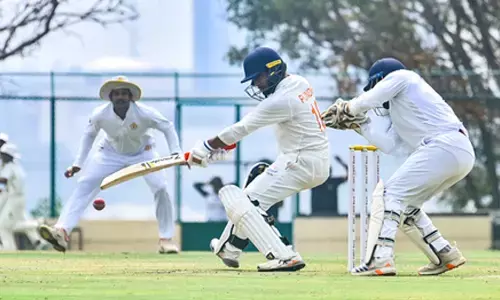Time management: A kernel to UPSC preparation

Time is the one thing in life that you can never get back. Once it's gone, it's gone forever. In today's fast-paced world, even though it seems like we're working 24/7, are we really making the best use of our time?
Time is the one thing in life that you can never get back. Once it's gone, it's gone forever. In today's fast-paced world, even though it seems like we're working 24/7, are we really making the best use of our time?
It's not enough to be busy, so are the ants. The question is, what are we busy about? In UPSC Preparation time management is the kernel of success. Time management is the most crucial part of UPSC preparation. Making effective and proficient use of it will enable you to manage your studies and counter any stress or pressure that you might encounter during the course of this preparation. Chanakya IAS Academy has devised a time management guide for UPSC aspirants that comprises of:
1) Make an honest assessment of available time: At first, decide how many months you have at your disposal and also how much time you can dedicate. You must keep in mind the time value of success and cost-benefit analysis principles. If you are a beginner and not working giving 6-7 hours of focused time is essential. On the other hand if you are a beginner and working, give at least 5 hrs daily. The ideal preparation period is 11-12 months. So plan accordingly. If you have lesser number of months available it is suggested those daily hours that you devote are stretched to 8 hours of study.
2) Set up realistic but little ambitious targets: You must set monthly, weekly and daily targets. The targets you set have to reflect your personal understanding and priorities. It is essential that these targets are realistic so that they are achievable while it is also important that they are ambitious so that they give you a push to utilize your time to the best extent. Make a list and gather your sources. Try to keep them limited i.e. instead of randomly picking up books and material. Be clear of books you wish to refer to and Current Affairs material website or notes you wish to follow. Also track your daily, weekly and monthly performances.
3) Divide large tasks into small yet achievable daily goals: A famous African proverb is that if you have to travel fast walk alone and if you have to go far away travel with others. The journey of thousand miles begins with a single step. You may have lot of subjects to cover but it starts with one single step taken at this moment. For example if you have planned to finish your optional in next 3 months.
Chalk out a plan that gives number of chapters to be completed in a week and number of pages you can complete in a day. This will enable you to monitor your progress and make changes whenever necessary. One of the foremost things to remember is to keep your schedule flexible. If during any unexpected event you are unable to follow your schedule, give yourself the space to do so. But always come back to the schedule. Also, when a schedule is not working for you, work on it.
4) Make smart use of technology: Internet and smartphone can make your life easier if you do not allow yourself to be carried away by it. If you dont have the time to read newspaper and make current affairs notes. Make use of apps like Evernote to organize your notes and copy-paste pictures and screenshots from any websites. You can use apps like habit trackers to track your habits and build your intended habits.
5) Manage your stress and anxiety levels: UPSC preparation may come with undue stress and pressure for some. Thus it is important to adequately manage it through proper nutrition, adequate physical exercises or any other activity along with meditation. Approaching a trusted adult or a friend in case of need is the best thing you can do. It is always important to remember during the course of the preparation that irrespective of the result there is ample scope for everybody to do well in life. Have faith in your abilities and give your best and leave the rest. Do not try to compensate for your stress with more books. More material can confuse you in the long run and reduce efficiency. Maintain the simplicity of your preparation.
6) Avoid distractions: The importance of meaningful breaks has already been discussed. But it is important to distinguish them from distractions that eat away your productive time. Breaks are taken at your own will when required, while distractions may come in the form of social media notifications or a family gathering. Thus use your own discretion and pick and choose as per your own will.








